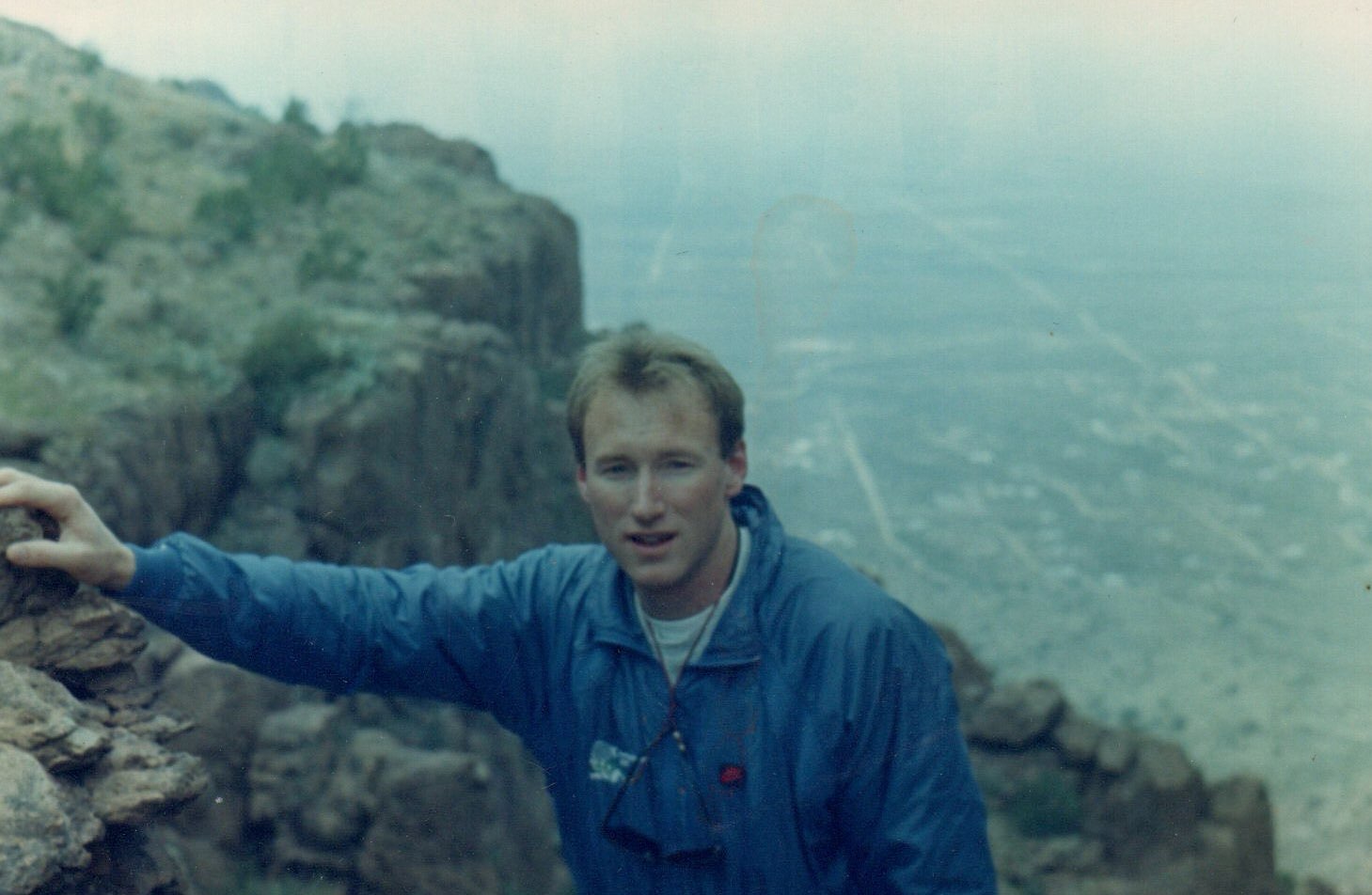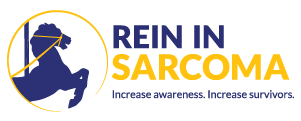
What do you most want people to know about your dad?
To know my dad, was to love him. Many remember him for his charisma, athleticism, humor, kindness, and genuine love for others. Some of his biggest loves include the Bahamas, James Taylor, tennis/pickleball, and grilling. He was simply the best and lit up any room he walked into.
How did his sarcoma diagnosis change your life?
It changed everything. His diagnosis taught me that this life does not last forever. It taught me that we as humans are not indestructible, but rather fragile. Since his passing, I don’t take the little things for granted and I don’t sweat the small stuff. I’ve learned to really enjoy the slow mornings. I spent many days with my dad grabbing coffee, walking around MOA to people-watch, or sit outside on the patio and simply catch up on life. Those mornings and laughs are something that I will never get back… and never forget. I think when life comes at you, it comes quick, and we often times forget to live in the moment. For example, had I known it would be the last time I ever played pickleball with him, I would have been SO much more present. All of these times spent together are now treasured memories. My advice to anyone is: Don’t allow a diagnosis or the loss of someone you love to be the reason you allow yourself to love a little harder, relax a little more, or dive into the things that truly make your heart happy. Being my dad’s primary caregiver was single-handedly the most rewarding, challenging, and heartbreaking thing I have ever been called to do in this life. I wouldn’t have had it any other way.
What’s something you still carry with you — a memory, a phrase, a feeling — from your time with him?
I don’t even know where to begin here. If you ask anyone, I am truly my dad to my core – personality and all. Key memories will always be our trips to the Bahamas. That was my dad’s second home, and he cherished it more than anything. I have made lasting friendships with the locals, and I still stay in contact with them regularly. My dad wouldn’t have had the same love for this beautiful place without the wonderful connections he made. I vividly remember when I got a call right after my dad had passed. I answered, and it was his best friend Ophran and son Shaggy. The call included condolences, memories, and tears over the lasting memories our families built together. The Bahamas is my sacred place, and we plan to spread my dad’s ashes there. He wouldn’t have wanted it any other way.
I can’t possibly go without mentioning all of the tennis memories we had together. My dad loved tennis with a passion and lived his life as a coach, player, and bystander to my high school varsity days. We spent hundreds of hours on the court together with our “second family” Randy, Kim, Wyatt, and God-daughter Savanna. They shared the same love for the Bahamas as did we. The days we played tennis IN the Bahamas, simply will never be beat. My dad will forever be the glue to these incredible relationships that I am so lucky to have.
As far as phrases go, he had a million…”It is what it is”, “I got more time than money, and I got more money than sense”… and many other ones may not be completely appropriate to mention here… HA.
The most important phrase, however: “if you are not laughing, you’re crying”. In a time of such pain, hardship, and fear, I have never laughed as long, hard, or often. In many instances we had individual nurses, doctors, etc. mention that they were surprised we were in such a good mood. And to that, every single time, my dad responded with “if you’re not laughing, you’re crying”. We lived every day to the fullest. I wish everyone could live every day like my dad did.
What surprised you most about navigating a sarcoma diagnosis as a family?
Navigating my dad’s sarcoma diagnosis was one of the most overwhelming and difficult things I have ever had to do. I come from a small family, with my parents being divorced, and I am an only child. My dad has little family left, although he does have a sister and nieces in Wisconsin. I knew when the diagnosis came, that this would primarily be something that him and I were going to battle together, just the two of us. Everything that goes into comfort, treatment, transportation, nutrition, all aspects of life, became more important.
I am lucky to have had Conner O’Brien in my life, who quickly became a close friend to both my dad and me. We found out that Conner and my dad both shared the same oncologist, who cured Conner 5 years ago now. He provided so much hope and positivity to my dad’s situation and gave him the strength to remain positive. I can’t stress enough the importance of finding a community that shares the same experiences, and looking back it was surprising at how much a simple connection could change one’s whole outlook on their situation.
What was the hardest part of grieving someone with a rare cancer?
I think “rare” is the key word here. I have found myself running into numerous colleagues, friends, etc, with family members who are being diagnosed with cancer. In our conversations, there is often times a more streamline approach to treatment with these more common cancers. It can feel bad knowing that in our case an answer wasn’t so easy, and ultimately, we weren’t able to save my dad. I found that is so important to remember at the end of the day, nobody ever wants to hear the “C” word and their name in the same sentence. I had to remind myself it was OK to feel angry, and jealous, and sad, because that is natural… but ultimately you need to find positivity to pull out of the situation, even if it takes every ounce of strength you have. Going through the grieving of losing my dad has made me exponentially more positive in my outlook on life. Anybody who has faced cancer, no matter the type, deserves to be celebrated – whether it be their strength, their cure, or their life. The cancer community is something truly special.
Were there times you felt isolated or unsure where to turn?
Absolutely. I think one of the most isolating parts was seeing all my friends be able to live out their young 20’s, whereas my day to day looked very different. But I was lucky being surrounded by people who showed up when it mattered most.
What would you say to someone who just lost a loved one to sarcoma?
The sadness and grief will never go away, but you will be able to carry it more gracefully each day. I regularly remind myself of the following: how incredible and lucky was I to have loved someone so deeply that I get to grieve their absence. Always remember to cherish your loved ones and relationships.
Why did you decide to get involved with Rein in Sarcoma?
Conner O’Brien told me about the board when we met. After seeing how much he helped my dad navigate his diagnosis and truly became such a close friend, I knew giving back to the foundation was something I would do once I had the capacity.
What does being on the board mean to you?
It means the world to me that a group of individuals with shared experiences value my input. I really can’t describe the feeling. When I found out I was voted onto the board, there were many tears. As we continue to grow and develop Rein in Sarcoma, it just means more lives saved, and that is incredible.
If your dad could see what you’re doing now, what do you think he’d say?
An interesting thing about my dad is that he refused to do immunotherapy. He said that if he was going to die, he was going to do it by helping others. He didn’t want to prolong anything, but he did want to contribute to research. Unfortunately, his health declined very rapidly in the last year, and we were not able to qualify for any clinical trials. He’d be proud knowing that I can now carry out that legacy.
There was a full circle moment, however. Directly after my dad’s passing, his retinas were donated. It turns out that his retinas were used in a study on retinopathy for diabetic patients… I have type 1 diabetes myself. I think even knowing that would have made him happy. Let’s be honest though, I know he knows.

